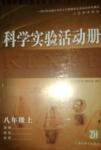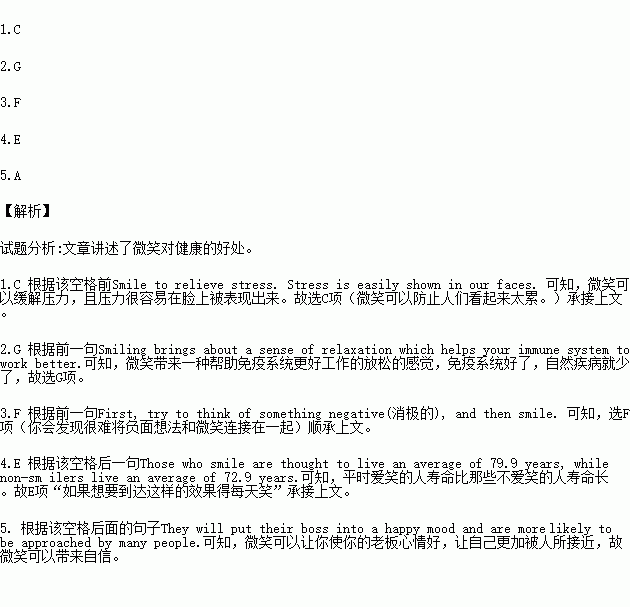题目内容
根据短文内容,从短文后的选项中选出能填入空白处的最佳选项。选项中有两项为多余选项。
How to smile for better health
As a fun way to improve your physical and mental health, smiling is free of charge. This article explores the ways you can smile to be healthy.
Smile to relieve stress. Stress is easily shown in our faces. 1. When you’re stressed, try to put on a smile, as it will make you feel happy, and you will appear happy. Your feelings of stress will be reduced.
Smile to help your immune(免疫) system work better. Smiling brings about a sense of relaxation which helps your immune system to work better. 2.
Smile to stay positive. Have a simple test. First, try to think of something negative (消极的), and then smile. 3. When we smile, our body and mind are sending us a message that everything is okay, and that life is great.
Smile to live longer. Those who smile are thought to live an average of 79.9 years, while non-smilers live an average of 72.9 years. 4.
Smile to achieve success. 5. . They will put their boss into a happy mood and are more likely to be approached by many people. They are more likely to be promoted. And it is an easy way to improve your relationships with others.
A. People who smile appear more confident.
B. Smiling is a good way to make new friends.
C. Smiling prevents people from looking too tired.
D. When someone is sad, try to make him laugh to cheer him up.
E. The only conclusion to be reached from this is to smile every day.
F. You will see that it is hard to combine the negative thought with the smile.
G. You can reduce the risk of sicknesses such as the cold and the flu by smiling.
 科学实验活动册系列答案
科学实验活动册系列答案
